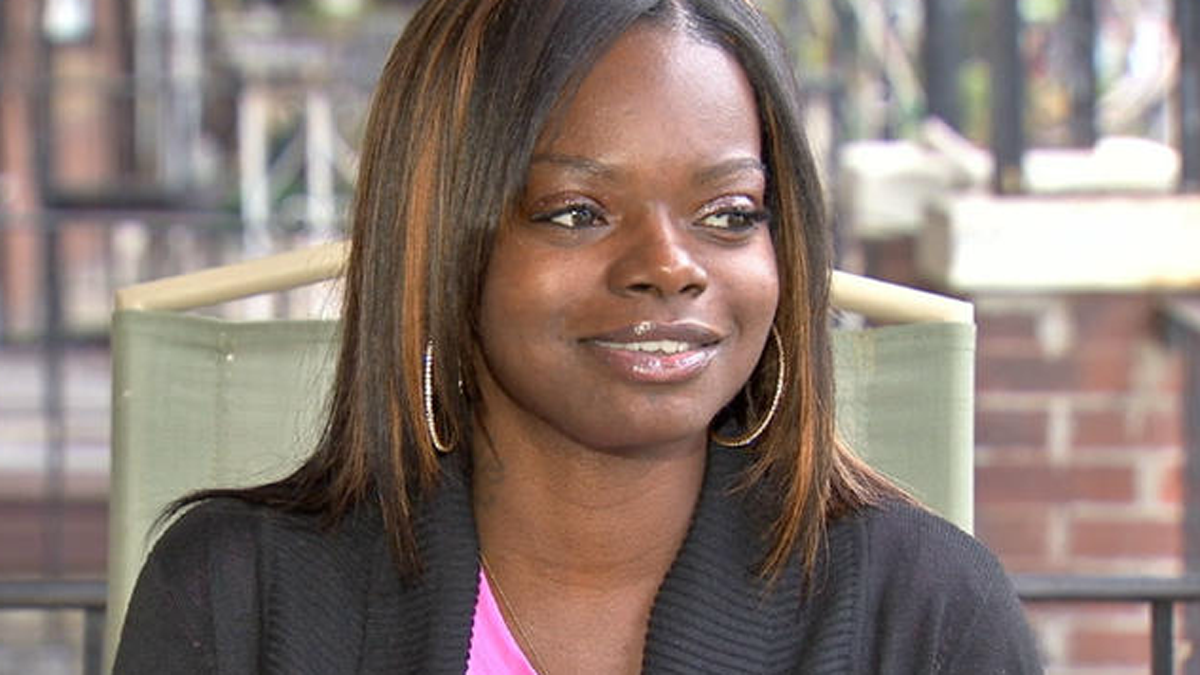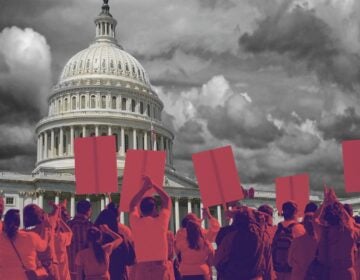Philly woman who mistakenly brought gun to NJ gets Christie pardon

Gov. Chris Christie pardons Shaneen Allen, a Philadelphia woman who was facing gun charges and jail time after a traffic stop in New Jersey in 2013. (Image via NBC10)
The case of Philadelphia resident Sheenan Allen, who accidentally carried a concealed gun into New Jersey in October 2013 and subsequently served almost 40 days in jail, has finally come to a close.
On Thursday, Allen was fully pardoned by Gov. Chris Christie. Under the Garden State’s strict Graves Act gun law, she initially faced a minimum three-year prison sentence.
The media attention brought on by Allen’s case — a mother of two with a legal concealed-carry permit in Pennsylvania — caused the state’s attorney general in September to clarify the law for cases like hers, and allowed her to trade prison time for a probation-style pretrial intervention for first-time offenders.
The memorandum passed by the attorney general potentially affected at least 100 other cases similar to Allen’s, but the fact remains that people charged with illegal concealed-carry still have to deal with the issue of a felony on their record — unless they are pardoned.
Take the case of Steffon Josey-Davis, a 24-year-old New Jersey resident and security guard who realized he left his gun in his glove compartment during a traffic stop, and was subsequently arrested. Like Allen, Josey-Davis settled for probation, but the felony on his record will keep him from achieving his goal of becoming a police officer.
New Jersey gun-rights lawyer Evan Nappen, who represented Allen, said the pardon for his client was the first of its kind in the state and an encouraging sign for others who seek a similar outcome.
“I think there’s every reason to be optimistic across the board, that we have a governor who will consider these matters and actually use his power, so, absolutely, he deserves credit for that,” said Nappen.
Still, Nappen wouldn’t go so far as to say he was satisfied with the outcome of his case; he indicated he was pleased, but lots of work remains.
“There’s plenty of folks that are suffering under this law that have no prior convictions, that are law-abiding citizens, and — other than this law — have no other problems in their lives,” said Nappen. “Why are we making those people into felons and why are we mandating these draconian laws upon them? I’m glad for the progress we’ve made, but things need to change further.”
Because of the Good Friday holiday, the state’s attorney general could not be reached for comment on whether Christie’s pardon would have any further implication on the tough laws.
The Rev. Robert Moore, executive director of the Coalition for Peace Action — the group under which Ceasefire New Jersey operates — wasn’t even aware of the minimum three-year sentence the Graves Act carried for first-time offenders.
“I do think that’s a little too draconian,” said Moore. “To some degree, it was the woman’s responsibility to learn what the laws in New Jersey were. Obviously, though, we’re all busy people, and, clearly, it was not done with malice. So, in that sense, I think it’s appropriate to have some flexibility in the enforcement and sentencing.”
Josey-Davis petitioned Christie for a pardon in January, according to another report. The governor also could not be reached for a comment on the pending paperwork.
WHYY is your source for fact-based, in-depth journalism and information. As a nonprofit organization, we rely on financial support from readers like you. Please give today.




